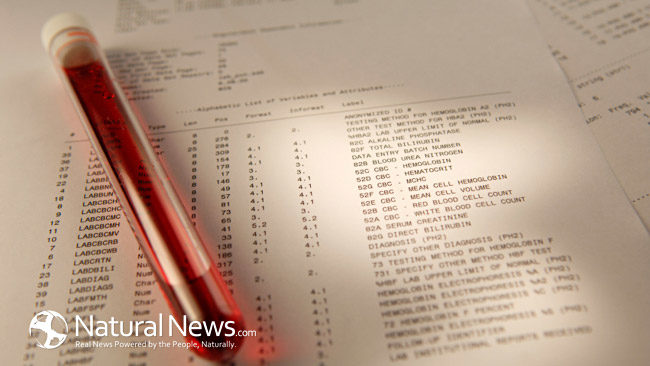Lipid profile or lipid panel is a complete cholesterol blood test performed to measure the amount of cholesterol or triglycerides present in the blood. It also helps determine the risk of developing plagues in the arteries which can narrow down or block them throughout the body causing cardio related diseases. In India, one person in every household suffers from high cholesterol issue. Therefore, it’s imperative to keep a check on your cholesterol level and get a lipid test done once every year or two. To know keep reading below:-
Basic Components
High cholesterol level usually does not show any signs or symptoms and hence, a lipid test becomes imperative to analyse the risk an individual is exposed to. The lipid profile test includes the calculation of four types of essential fats or lipids in the blood. These include:-
- Total blood (serum) cholesterol – the sum of blood’s total cholesterol content
- High-density lipoprotein (HDL) cholesterol – Also known as good cholesterol, it helps remove bad cholesterol from the arteries, thus ensuring smooth flow of blood.
- Low-density lipoprotein (LDL) cholesterol – Also known as bad cholesterol, it causes the built-up of fatty deposits in the arteries which reduce the flow of blood. This sometimes rupture the arteries and cause heart attack or stroke.
- Triglycerides – These are types of fats that exist in blood. High level of triglycerides are associated with several factors such as overweight, eating too many sweets, excess consumption of alcohol, smoking, etc.
Types of Lipid Test
Majorly there are seven types of complete cholesterol tests performed in India. These include:-
- Serum total cholesterol
- Serum HDL cholesterol
- Serum phospholipids
- Serum triglycerides
- Total lipids
- Total cholesterol/HDL and cholesterol ratio
- Electrophoretic fractionation to determination percentage of
- Chylomicrons
- LDL-low density lipoprotein
- LDL-low density lipoprotein
- HDL-high density
Who Should Get The Test Done?
Every adult is at a risk of developing heart disease and therefore, it’s imperative to get yourself checked once every year or two. However, more frequent testing may be needed if your initial test results were not normal or if you’re at a higher risk of cardiovascular disease because of the following reasons:-
- Family history of high cholesterol or heart related diseases
- Being overweight
- Physically inactive
- Have diabetes
- Consume a high fat diet
- Smoke excessively
- Are above the age of 45 (in men) or 50 (in women)
- Diabetes
- Genetic of the person
Risks Involved
Lipid profile is a kind of blood test which is very easy to perform. There’s no such risk involved. However, you may experience some soreness or tenderness around the area from where the blood has been drawn.
Test Range Values
The range value of each element tested, as mentioned above, is as follows:-
- Total blood (serum) cholesterol
- Desirable Range: Less than 200 ms/Dl
- Borderline high Range: Between 200 to 239 mg/dL
- High Range: More than 240 mg/dL
- Low-density lipoprotein (LDL) cholesterol
- Optimal Range: Less than 100 mg/dL
- Near Optimal Range: Between 100 to 129 mg/dL
- Borderline High Range : Between 130 to 159 mg/dL
- High Range: Between 160 to 189 mg/dL
- High-density lipoprotein (LDL) cholesterol
- Desirable range: 60mg/dL or higher
- Risk range: 40mg/dL or below
- Triglycerides
- Normal Range: less than 150 mg/dL
- Borderline-High Range: Between 150 to 199 mg/dL
- High Range: Between 200 to 499 mg/dL
- Very High Range: 500 mg/dL and above
- Non-HDL Cholesterol
- Optimal Range: Less than 130 mg/dL
- Near/above optimal Range: Between 130 to 159 mg/dL
- Borderline high Range: Between 160 to 189 mg/dL
- High Range: Between190 to 219 mg/dL
- Very high Range: Above 220 mg/dL
Note: Range values can differ from one pathology lab to another.
Significance of the Test
Typically, a lipid profile test checks the health of the heart and how prone he/she is to developing heart diseases and strokes. A pathologist analyses the overall factors of the result so obtained and gives a verdict on how the patient’s condition is, risk factors he/she is exposed to and whether any form of treatment may be required to cure the problem detected. Over the time, there has been a significant advancement in the field of medical science and today there are a plethora of ways to keep the cholesterol level in check, thus easily avoid the risk of gaining heart related severe diseases.
Common Denominators in Cholesterol Lowering Foods
A change in your diet can easily help avoid or lower the level of bad cholesterol in the body. Some common denominators that must be taken into consideration include:-
- No hydrogenated oils or trans fats
- High in fibre
- Contain monounsaturated and polyunsaturated fats
- No artificial ingredient, processed foods or refined sugar and grains
- Lean protein from pasture-raised, grass-fed or wild sources.
Cholesterol Lowering Foods
In addition regularly getting a lipid profile done, it’s essential to add the following listed food items in your diet. The supplements of each of these foods have the prowess to keep the bad cholesterol from harming the arteries and promote a healthy life.
- Green leafy vegetables
- Nuts – especially walnut
- Chia & Flax Seeds
- Olive Oil
- Avocado
- Salmon
- Sweet Potato
- Garlic
- Turmeric
- Beans and Legumes
- Green Tea
- Gluten Free Whole Grains
If you wish to know more about Lipid Profile test – CLICK HERE !
Ref Links:
http://www.healthwhoop.com/lipid-profile/
https://s-media-cache-ak0.pinimg.com/736x/5c/fd/ff/5cfdff4b064f536ef5ecb210c54feb60.jpg
http://www.webmd.com/cholesterol-management/understanding-your-cholesterol-report
https://labtestsonline.org/understanding/analytes/lipid/tab/test/
http://www.mayoclinic.org/tests-procedures/cholesterol-test/home/ovc-20169526





